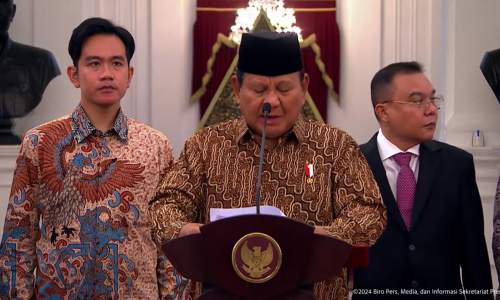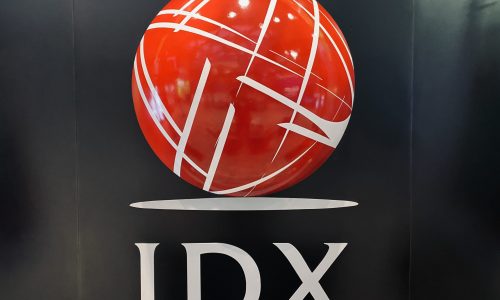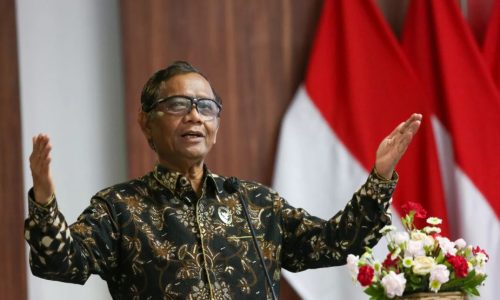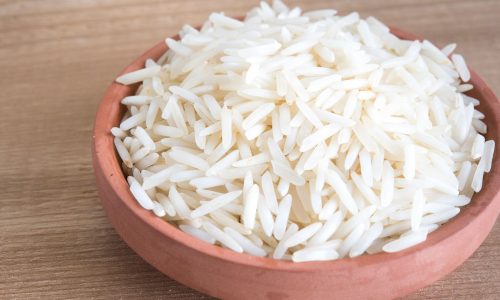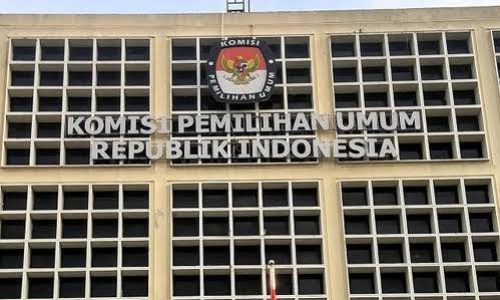One of the challenges faced by the Indonesian palm oil industry is the European Union Deforestation Regulation (EUDR) imposed by the Group of 27 European countries that will come into effect next January.
Chairman of Indonesian Palm Oil Association (GAPKI) Eddy Martono said the party that will be impacted by the policy is the partner of palm oil companies, i.e. the plasma farmers, as EUDR will require very strict conditions as benckmark for palm oil products.
“There are high, medium and low risk countries. So, the problem of high risk countries is that 9 percent of their palm oil products must have due dilligence,” Eddy said while addressing the 43th anniversary of GAPKI on Tuesday, February 27, 2024.
The EU has implemented regulations to contain the negative impact of the EU market on global deforestation and forest degradation worldwide, while simultaneously protecting the rights of indigenous peoples. The EUDR applies due diligence to companies that place goods related to deforestation and forest degradation on the EU market. These items are beef, chocolate, coffee, palm oil, rubber, soybeans and timber. Under the EUDR, these seven commodities and their related products must meet requirements related to deforestation and forest degradation in order to be sold or exported to the EU market.
When a vessel carries palm oil products to export market, Eddy said, it does not carry products from a single company. There are several companies or palm oil factories which ships their products, including the products from the community or plasma farmers. As a consequence, there is no clear instruction on who will do the due dilligence , who will pay for the due dilligence and how long the due dilligence will be done.
Another problem is that palm oil companies have the obligation based on the EUDR to segregate palm oil fruits from plasma farmers and the companies. The companies have to build their own tanks and set separate working hours to proccess the palm oil fruits from the plasma farmers.
“We are fighting for this so that its implementation will not make it difficult for us. Although Europe imports only 3.7 million tons, we should not underestimate them because this policy could spread to other countries,” said Eddy.
Deputy to Coordinating Minister for the Economy, Musdalifah Mahmud, said the whole world, including palm oil producing countries, have rejected the EUDR. Indonesia and Malaysia, she said, has established a joint task force to address various issues related to the implementation of the EUDR faced by Indonesia and Malaysia. The task force was also to identify the best solutions and resolutions related to EUDR implementation.
“We must be united and fight against it and not undermine each other and eliminate the role of one or two people, in order to exist. We fight together, fight for palm oil together,” Musdalifah said.
She denied that the Indonesian palm oil industry has destroyed forest because Indonesia still has 120 million hectares of forest and 27 million hectares of germ plasm, while palm oil plantaion only exploits 16 million hectares of land.
2023 performance
Crude Palm Oil (CPO) production in 2023 is estimated to reach 50.07 million tons, an increase by 7.15 percent from 2022 at 46.73 million tons. Meanwhile, Palm Kernel Oil (PKO) production reached 4.77 million tons, up 5.66 percent from the previous year (2022) at 4.52 million tons.
This increase in production from 2022 is due to various reasons, including:
(1) Palm oil prices towards the end of 2021 and throughout 2022 were relatively high, thus encouraging business actors to properly manage their their plantations, including the use of fertilizers;
(2) The expansion of plantation areas in 2023. This is in accordance with data from the Ministry of Agriculture in the period of 2017-2020, when there was an expansion of 540 thousand hectares in 2020. It is estimated that in 2023 there will be an additional plantation area of 260 thousand hectares;
(3) El Nino, which was originally expected to severely hit Indonesia, apparently did not affect palm oil production, because it hit most of southern Indonesia.
Domestic palm oil consumption shows an increase from 21.24 million tons in 2022 to 23.13 million tons last year, an increase by 8.90 percent.The implementation of Biodiesel (B35) policy, which became effective in July 2022, has increased domestic consumption by 17.68 percent from 9.048 million tons in 2022 to 10.65 million tons in 2023. With the implementation of B35, the consumption of biodiesel consumption during 2023 has exceeded domestic food consumption.
Exports of CPO and PKO products decreased by 2.38 percent from 33.15 million tons in 2022 to 32.21 million tons in 2023. Meanwhile, exports of biodiesel and oleochemicals increased by 29,000 tons and 395,000 tons, respectively.
A large decrease was recorded in exports to the EU by 11.6 percent from 4.13 million tons in 2022 to 3.70 million tons in 2023. In contrast, exports to Africa increased by 33 percent from 3,183 thousand tons in 2022 to 4,232 thousand tons last year. Export to China increased by 23 percent from 6,280 thousand tons in 2022 to 7,000 thousand tons in 2023. Export to India rose by 8 percent from 5,536 thousand tons in 2022 to 5,966 thousand tons in 2023 and export to the USA increased by 10 percent from 2,276 thousand tons in 2022 to 2,512 thousand tons last year.
The average price of palm oil for 2023 compared to 2022 in the CIF Rotterdam market fell by by 28.7 percent, where the average price in 2023 was US$964/ton or much lower than the previous year with an average of US$ 1,353/ton, causing a significant decline in the value of Indonesian palm oil exports by 39.7 percent in 2023 compared to 2022. With a 2023 beginning stock of 3.69 million tons, Indonesia’s 2023 ending stock of CPO and PKO products is estimated to reach 3.14 million tons.



